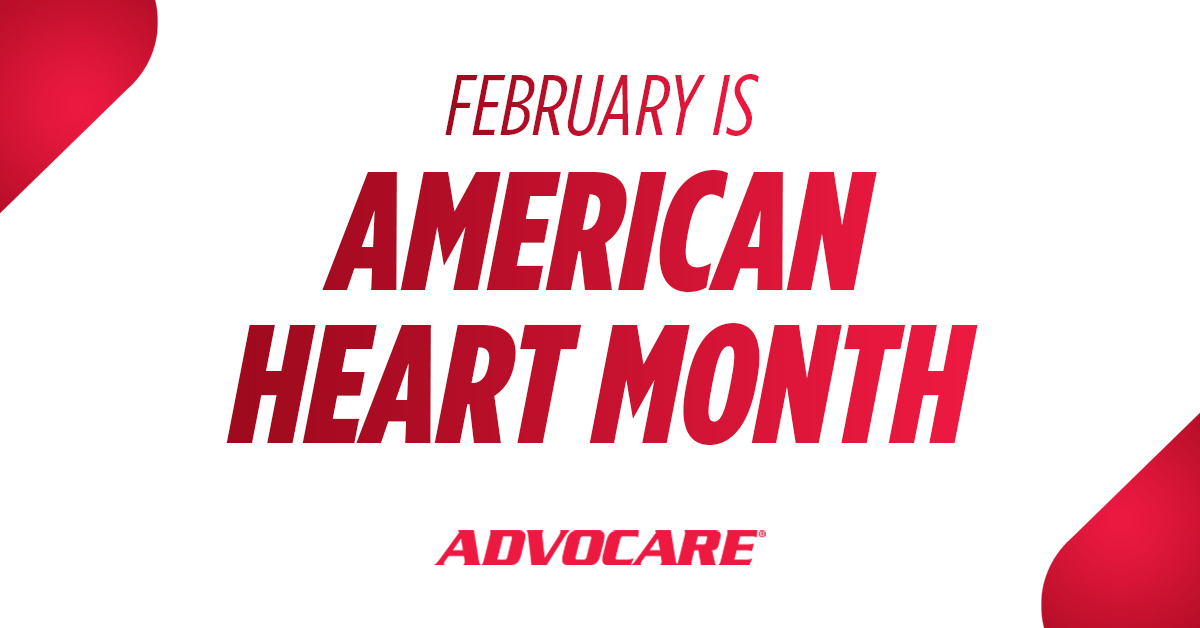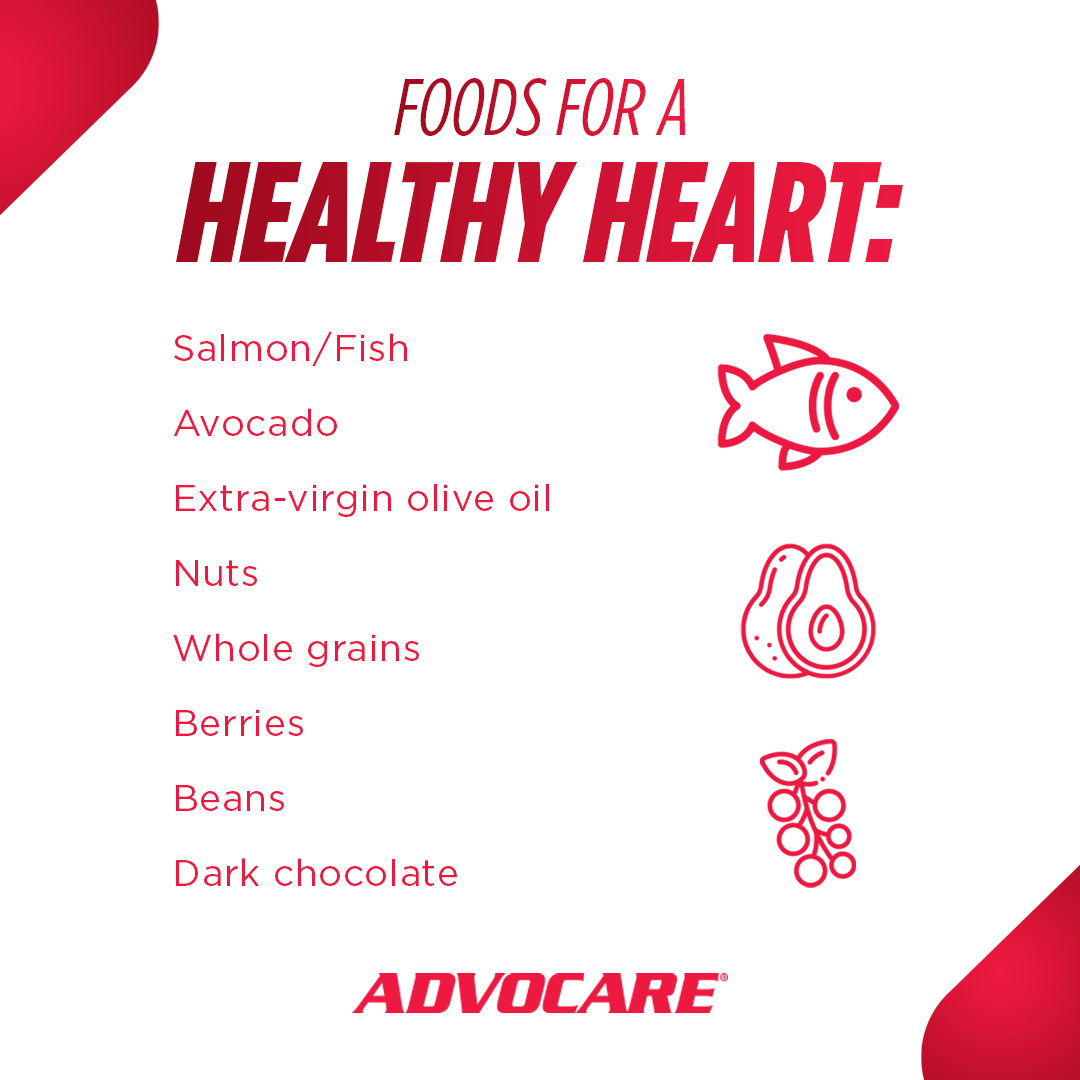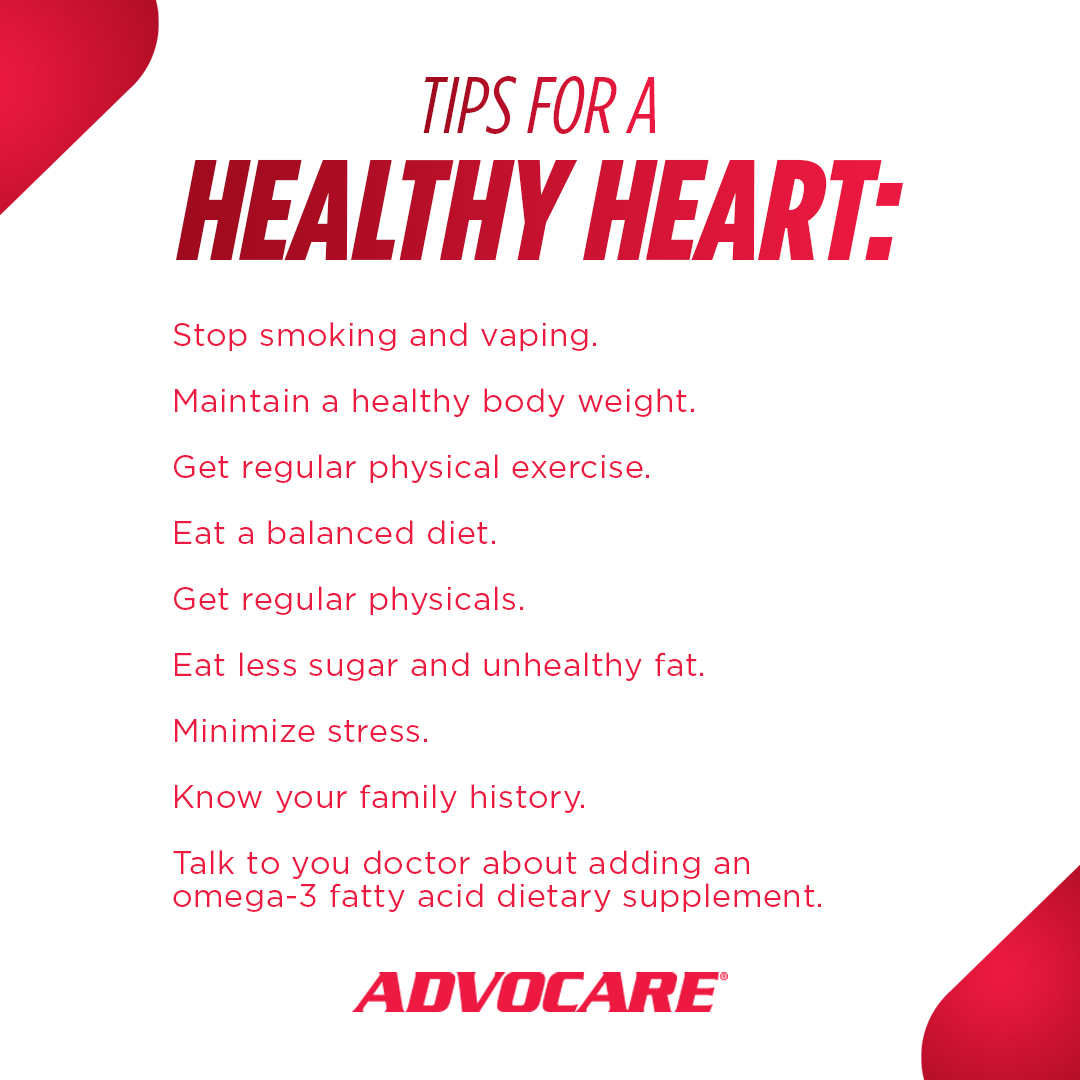
February is American Heart Month! It may seem a little cliché as it’s also the month that harbors Valentine’s Day – the holiday adored by some and abhorred by others – but what a great reminder of the importance of keeping your heart healthy and to support the American Heart Association!
Cardiovascular disease, CVD, is the leading cause of death for women, men, and people of most racial groups in the United States. According to the Centers for Disease Control, one person dies every 37 seconds from CVD; this translates into about one in every four deaths each year. Most often, we associate CVD with old age, however it’s beginning to affect individuals who are younger in age. But there’s good news – it can be preventable, and your lifestyle is your best defense. There are several things you can do to decrease your risk of developing CVD. Let’s discuss risk factors and a few tips that may help lower your risk.
Risk factors that increase my chances for developing CVD
Obesity is a disease. The Centers for Disease Control and Prevention describe obesity as having a body mass index of 30 or higher. This means that if you are around 5’9” and weigh 203 pounds or more, you are obese. BMI is a numerical value of your weight in relation to your height. To give an idea, this usually equates to being about 30 pounds or more overweight.
Diabetes mellitus is a condition in which the body cannot use glucose normally. This is important because glucose is the main source of energy for the body. Insulin, a hormone produced by the pancreas, helps control the levels of glucose in the blood.
High blood pressure or hypertension is abnormally high blood pressure. About one in three U.S. adults has high blood pressure. Hypertension is called the “silent killer” because people usually do not exhibit any warning signs. High blood pressure is the second leading cause of preventable heart disease or stroke. Interestingly, more women than men, age 65 and older, have hypertension.
High cholesterol can be a key indicator for developing CVD. Your body naturally makes cholesterol, but if you have too much of the wrong type of cholesterol, low density lipoprotein, it may lead to increased stickiness of the arteries and even blockage of blood flow.

Poor dietary habits are a major contributor, and a heathy diet aids prevention. About 45 percent of U.S. deaths caused by heart disease, stroke and type 2 diabetes are due to poor dietary habits – this means high sodium intake, high sugary drink consumption and low intake of fruits and vegetables. In fact, consuming greater than 2000 mg of sodium per day may actually cause one in 10 cardiovascular deaths worldwide.
Smoking is a major cause of CVD and causes one of every three deaths from cardiovascular disease. Smoking can increase triglycerides, a type of fat in your blood. It can also lower “good” cholesterol, known as high-density lipoprotein or HDL. Increased fat in the blood can cause blood to become sticky and more likely to clot, which can lead to a blockage in blood flow in the heart and the brain.
So what can you do to improve your lifestyle?
Eat a healthful diet. Diets low in saturated fats, sodium and added sugars, but high in fruits, vegetables and whole grains, help to lower risks of developing CVD. The National Institutes of Health developed a diet to help prevent the development of hypertension – the DASH Diet (Dietary Approaches to Stop Hypertension). If you are not sure where to start, try using the DASH diet eating plan to help lower your blood pressure and cholesterol.
Lose a little weight. According to the guidelines released by the American Heart Association, weight loss is suggested as a strategy to prevent heart disease and stroke. A few of the best techniques for weight loss include eating fewer calories than your body needs, exercising more and changing unhealthy behaviors. If it is hard for you to stay on track with your weight-loss journey, try journaling, setting SMART goals and using your support system for accountability. Need help? The AdvoCare 24-Day JumpStart™ Facebook Group has lots of great tips and support for your weight management goals.
Exercise has many benefits including improving circulation and strengthening the heart. When paired with a healthy diet, exercise can also help maintain a healthy weight and lower cholesterol and blood pressure. In fact, exercise has been shown to help increase good cholesterol-HDL. The U.S. Food and Drug Administration recommends incorporating at least 2.5 hours of aerobic physical activity and 2 days of weight training into your weekly regimen.
Manage stress levels. Research has shown that stress contributes to heart disease. Stress elevates blood pressure. Prolonged stress is associated with overeating, heavily drinking and smoking and ultimately is bad for your heart. There are many ways you can help manage your stress such as maintain an active lifestyle, listen to music, positive self-talk, read a fictional book, meditate or pray, and go on walks.

Get adequate amounts of sleep. Sleep is one of the most underrated things you can do for your health. Not getting enough raises your risk of high blood pressure, obesity and diabetes, which increases your risk for heart disease. According to the CDC, most adults need seven to nine hours of sleep each night. Try setting a sleep routine – go to bed at the same time each night, turn off technology including the television, dim lights and maintain a comfortable temperature in your sleeping environment. If you struggle with getting adequate sleep, consult your physician. There may be an underlying condition.
Stop smoking. The American Heart Association reports that the most preventable cause of premature death in the United States is smoking. Cigarette smokers have a higher risk of developing atherosclerosis (the formation of fatty plaques in the arteries), several types of cancer and lung disease. The health benefits start almost immediately after a person quits smoking and within a few years of quitting, the risk of stroke and coronary artery disease will actually be similar to that of a non-smokers.
During Heart Month, what changes will you make to improve your heart health?
For more tips on being better to your heart, visit 6 Keys to Heart Healthy Living.
 Dr. Lauren Horton is a senior manager in Research and Development at AdvoCare. She has used her expertise to successfully develop protocols, clinical designs and test strategies to help AdvoCare achieve research and product development goals. Before joining AdvoCare International, she was a clinical researcher at a leading clinical research organization. Dr. Horton loves to help improve the quality of life of those around her. She has helped men and women from all over the country discover how small steps each day can lead to huge strides towards living a healthier lifestyle. Dr. Horton holds a BS in biology from Rust College and a PhD in biomedical science from Morehouse School of Medicine and completed her post-doctoral studies at the University of Pennsylvania.
Dr. Lauren Horton is a senior manager in Research and Development at AdvoCare. She has used her expertise to successfully develop protocols, clinical designs and test strategies to help AdvoCare achieve research and product development goals. Before joining AdvoCare International, she was a clinical researcher at a leading clinical research organization. Dr. Horton loves to help improve the quality of life of those around her. She has helped men and women from all over the country discover how small steps each day can lead to huge strides towards living a healthier lifestyle. Dr. Horton holds a BS in biology from Rust College and a PhD in biomedical science from Morehouse School of Medicine and completed her post-doctoral studies at the University of Pennsylvania.




